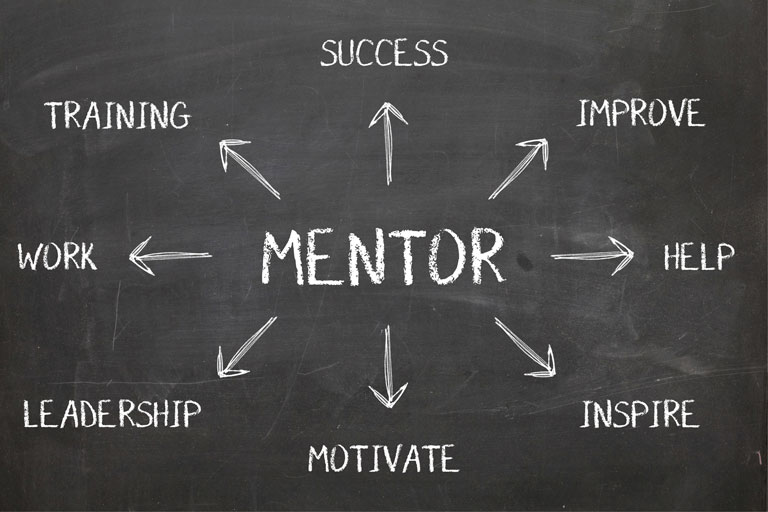by Joanne Foster, EdD
Synopsis
Here’s an overview of why mentorships are increasingly popular, including benefits, structuring guidelines, and lots of helpful information for parents, teachers, and kids.
“The term ‘mentor’ comes from Greek mythology: Odysseus’ son Telemachus was entrusted to the care of Mentor, a wise advisor. History and literature from classical times to the present abound with examples of mentorships in politics, business, science, the arts, and education. Aristotle benefited from his mentorship under Plato, as Mickey Mouse benefitted from his in Fantasia’s ‘The Sorcerer’s Apprentice.’”
~ Excerpt from p. 160 of Being Smart about Gifted Education
WHAT, EXACTLY, IS A MENTORSHIP?
A mentorship is a supportive relationship established between a learner and someone who is more experienced in a particular domain. (For example, sciences, business, creative arts, technology, and so on.) The mentor offers guidance, knowledge, and understanding. Mentoring requires an investment of time and patience, and a willingness to support and encourage the learner. Typically, the “mentee” is deemed to be the learner, but in truth all strong mentorships are mutually rewarding experiences wherein both parties interact meaningfully and respectfully with one another, learn, and derive benefits.
WHAT KINDS OF BENEFITS?
Here’s a list of ways mentorships can strengthen a child’s or teen’s learning:
- Enriched perspectives relating to an area of interest, including useful information, skill sets, creative and critical thinking opportunities, and practical applications
- Transmission of values and attitudes
- Enjoyment
- Enhanced and authentic connections to important domains of competence, and to others within the “real world” (This includes exposure to fields of interest—leading to greater career path awareness, preparation for taking on roles, and appreciation of accomplishment in the chosen area.)Emotional support
- Discovery of resources beyond the classroom
- Intellectual challenge and increased competence, including perhaps the creation of a possible portfolio of acquired learning achievements
- Encouragement and guidance for self-directed learning
- Expansion of understandings of diversity and possibility (For example, non-traditional minority professionals can challenge gender and cultural stereotypes, and mentorships can be particularly beneficial for students from culturally diverse or economically disadvantaged backgrounds.)
- Respect for expertise
- Relationship-building experiences
- Positive role models, including helping kids better understand pathways to high achievement
- Potential for academic credit
Here’s a list of benefits for mentors:
- Ongoing learning
- Rejuvenation of spirit
- Sense of fulfillment
- Sense of respect and of being valued
- Fresh perspectives—seeing things anew from the point of view of mentees
- Involvement and enjoyment
- Contribution to the skills and expertise of young people interested in possibly entering the field of interest
- Vicarious satisfaction through accomplishment of the protégé
- Connections to the educational system
- Inter-generational friendship
- Community engagement
HOW TO STRUCTURE A MENTORSHIP?
In any mentorship arrangement, it’s important to clarify expectations. These should be agreed upon by both the mentor and the mentee, with parents and teachers overseeing the process, and with their approval. It’s a good idea to draw up a written agreement outlining intents and responsibilities. This includes the right of withdrawal from an arrangement if it does not seem to be working out well. Periodic review of this “contract” will help to ensure that everyone’s expectations are being met.
A mentorship can be a one-on-one program between two people, or it may take the form of more a complex arrangement with others involved. Either way, it should be part of an individual student’s overall educational plan, and it should also be valued as an integral component of it.
Heads up—any program involving kids requires careful supervision and consistent monitoring by adults. With that caveat uppermost, here are a few possible “models” for mentorships.
Co-creation of an individualized program by the mentor and the student, always under the guidance of parents or teachers
School visits by vetted community experts who can help to increase the depth of programming that classroom teachers are able to provide
Job-shadowing programs, whereby students prepare for the mentorship phase in school, and then spend time in the pre-approved career setting of their mentor
Online or virtual mentorship programs—especially good for children and teens who want to investigate a field or learn about something that is not otherwise readily accessible to them (Note: Online options demand attentive supervision.)
Creative approaches, whereby a mix of the above might be contemplated, or an innovative mentorship format is designed for specific purposes. For example, mentorships are a frequently recommended practice in gifted education. Unique or differentiated learning experiences can provide gifted learners with targeted and enriching educational opportunities and challenges in areas of heightened advancement. (Click here for an article with additional information about fostering giftedness.)
WHERE TO FIND A MENTOR?
Do you find these posts helpful and informative? Please CLICK HERE to help keep us going!

